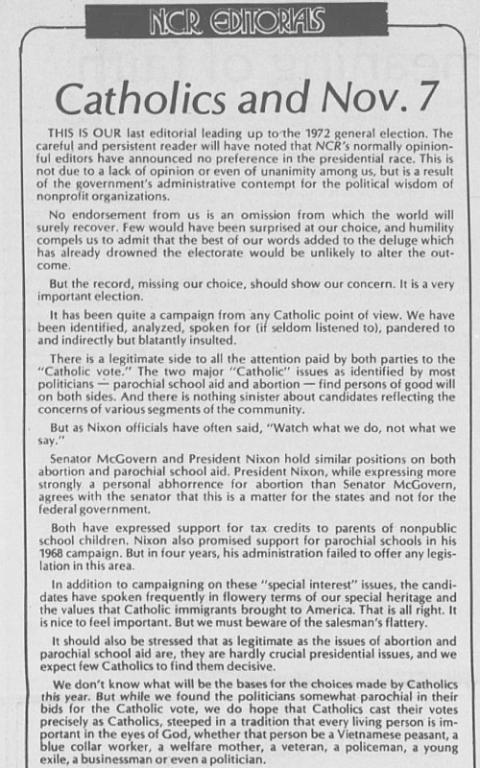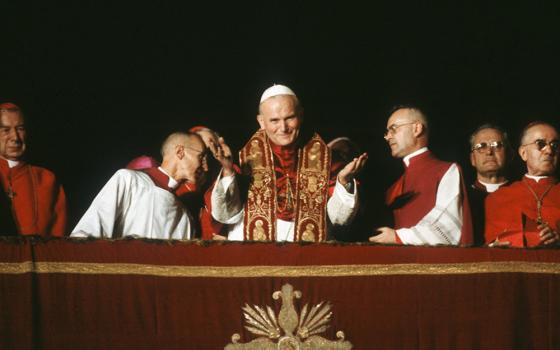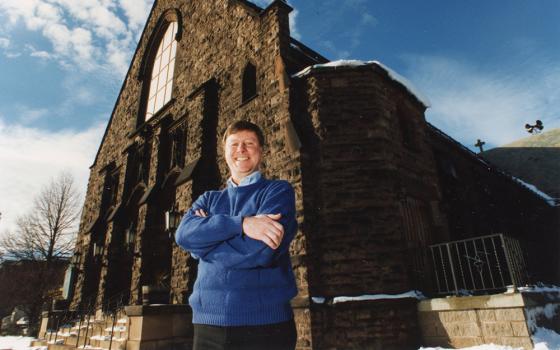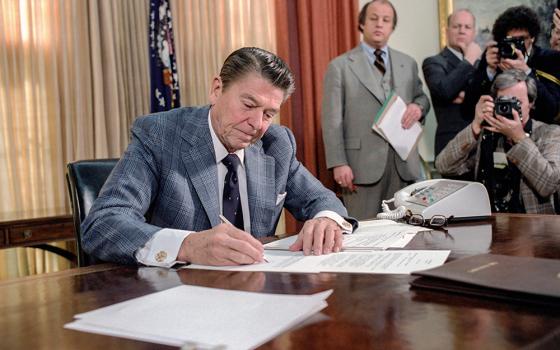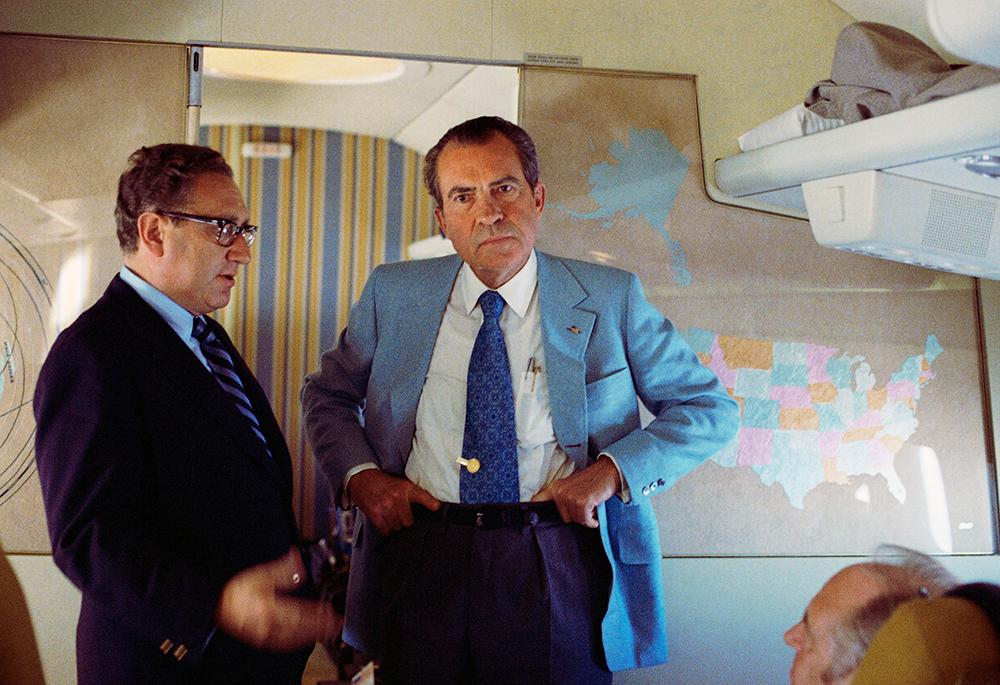
Then-U.S. President Richard Nixon and then-National Security Advisor Henry Kissinger stand on Air Force One during their voyage to China Feb. 20, 1972. Nixon won a second term following the 1972 general election. (OSV News/Richard Nixon Presidential Library handout via Reuters)
Editor's note: To celebrate our 60th anniversary, we are republishing articles from our archives. Find more articles here.
The following staff editorial was published four days before the general election of 1972, when Richard Nixon won his second term in a historic landslide. Notably, the editorial board refrains from endorsing a candidate, citing the paper's nonprofit status — a limitation reiterated by our executive editor James V. Grimaldi in a recent column.
You'll notice a continuity between the paper then and now, with references to the issues of abortion and parochial education and their importance to the Catholic electorate.
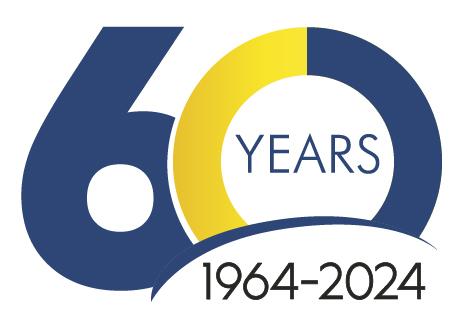
(NCR logo/Toni-Ann Ortiz)
But NCR's editorial reminds readers that neither candidate nor their parties have entirely trustworthy records or substantive proposals on those two most "Catholic" of issues. And just as NCR has done this election cycle, the 1972 editorial ponders the validity of a "Catholic vote."
Ultimately, the editorial makes explicit reference to God's love for the "Vietnamese peasant" — perhaps a nod to Democratic nominee George McGovern's anti-war platform.
—Nov. 3, 1972
by NCR EDITORIAL STAFF
THIS IS OUR last editorial leading up to the 1972 general election. The careful and persistent reader will have noticed that NCR's normally opinionful editors have announced no preference in the presidential race. This is not due to a lack of opinion or even of unanimity among us, but is a result of the government's administrative contempt for the wisdom of nonprofit organizations.
No endorsement from us is an omission from which the world will surely recover. Few would have been surprised at our choice, and humility compels us to admit that the best of our words added to the deluge which has already drowned the electorate would be unlikely to alter the outcome.
But the record, missing our choice, should show our concern. It is a very important election.
It has been quite a campaign from any Catholic point of view. We have been identified, analyzed, spoken for (if seldom listened to), pandered to and indirectly but blatantly insulted.
There is a legitimate side to all the attention paid by both parties to the "Catholic vote." The two major "Catholic" issues as identified by most politicians — parochial school aid and abortion — find persons of good will on both sides. And there is nothing sinister about candidates reflecting the concerns of various segments of the community.
But as Nixon officials have often said, "Watch what we do, not what we say."
Senator McGovern and President Nixon hold similar positions on both abortion and parochial school aid. President Nixon, while expressing more strongly a personal abhorrence for abortion than Senator McGovern, agrees with the senator that this is a matter for the states and not for the federal government.
Both have expressed support for tax credits to parents of nonpublic school children. Nixon also promised support for parochial schools in his 1968 campaign. But in four years, his administration has failed to offer any legislation in this area.
Advertisement
In addition to campaigning on these "special interest" issues, the candidates have spoken frequently in flowery terms of our special heritage and the values that Catholic immigrants brought to America. That is all right. It is nice to feel important. But we must beware of the salesman's flattery.
It should also be stressed that as legitimate as the issues of abortion and parochial school aid are, they are hardly crucial presidential issues and we expect few Catholics to find them decisive.
We don't know what will be the bases for the choices made by Catholics this year. But while we found the politicians somewhat parochial in their bids for the Catholic vote, we do hope that Catholics cast their votes precisely as Catholics, steeped in a tradition that every living person is important in the eyes of God, whether that person be a Vietnamese peasant, a blue collar worker, a welfare mother, a veteran, a policeman, a young exile, a businessman or even a politician.

